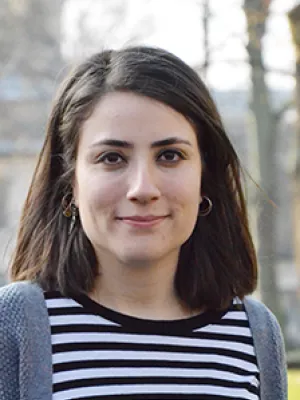
Cansu Bostan
Postdoctoral fellow

Games of Justice: Ethnographic Inquiries on Space, Subjectivity and Law in Northern Kurdistan
Author
Summary, in English
I) The relationalities spatializing Turkishness are revealed as marked by exclusions. The state law is made sense of by being positioned outside of its realm and is attributed a meaning through its exclusivist operation in Northern Kurdistan, and justice gains its meaning as a tool for the state to derive legitimacy in different forms of procedural justice and substantive justice to regulate the shifting boundaries of the state law drawn between certainty and uncertainty. II) When the inquiries focus on the resistances marked by incorporation and contestation, state law is attributed a tactical meaning as a tool used against the state to communicate excluded experiences and as an archive to document past and present injustices for a peaceful future. Justice takes the form of aspirations within this web of relationalities. III) The law’s form changes when the inquiries focus on emerging large-scale mobilizations taking Kurdistan as their reference point beyond a mere countering to Turkishness. An ethical-aesthetical regulation is named law, forming its ensemble ranging from people equipped with a role in dispute-resolution to the political-ideological mechanisms and their commissions and courts. Justice is reformulated to legitimize these mechanisms in the socially-embedded, experiential form of popular justice.
This study shows that the connection of justice to law is triggered by spatializations shaping their relationship in particular encounters. By presenting the accounts, namings and meanings in their multiplicity, this study hopes to contribute to an imaginary of honorable and sustainable peace in Northern Kurdistan.
Department/s
- Department of Sociology of Law
Publishing year
2022
Language
English
Publication/Series
Lund Studies in Sociology of Law
Full text
- Available as PDF - 24 MB
- Download statistics
Document type
Dissertation
Publisher
Lund University (Media-Tryck)
Topic
- Sociology
Keywords
- Law and justice
- Spatialization
- Truth-subjectivity regime
- Game of truth
- Becomings
- Ethnography
- Amed
- Northern Kurdistan
Status
Published
Project
- Games of Justice: Ethnographic Inquiries on Space, Subjectivity and Law in Northern Kurdistan
Supervisor
- Ida Nafstad
- Martin Ramstedt
ISBN/ISSN/Other
- ISSN: 1403-7246
- ISBN: 978-91-8039-290-7
- ISBN: 978-91-8039-289-1
Defence date
17 June 2022
Defence time
13:30
Defence place
Pufendorfinstitutet, Biskopsgatan 3, Lund
Opponent
- Katrin Seidel (Senior Research Fellow)